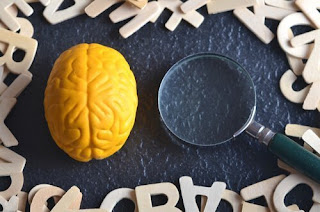What is Experimental Psychology?
To arrive at a safe and accurate result, researchers often use different scientific methods. This is what experimental psychology focuses on mainly. Experimental psychology explores basic concepts such as memory and motivation in areas such as child, social and education psychology.
Almost all experimental psychology work is performed in a controlled environment as a research laboratory. Experimental psychologists manipulate research variables to explore the relationship between thinking and behavior.
While the other branches of psychology strive to understand human behavior and thought processes, the experimental psychology focuses on performing controlled experiments with designated variables, test subjects, and statistical results.
Experimental Psychology: The Origin
For many, it was Charles Darwin and his About the Origin of Species that began the direction of the experimental psychology. On the other hand, there is no doubt that Darwin's revolutionary theory started the interest in the relationship between biology and psychology. In the early 1900s, psychologists began to use science to analyze and explain the human mind.
Functionalist theories, however, replaced people's wrong idea that the human mind is a machine. For example, William James - the father of the American psychology - was heavily influenced by evolutionary biology. He advocated the idea that the mind is naturally adaptable, sensitive and intelligent.
In the end, it was behaviorism and other areas of modern psychology that contribute with what we know today about experimental psychology.
Drawing of the brain
What do experimental psychologists do?
Experimental psychologists seek to study behaviors and the various processes and functions that support them. They test the subjects in the understanding and learning of different subjects, such as memory, emotion, learning, motivation and emotion.
In order for these psychological studies to be credible, four basic principles must be present.
Determinism: Experimental psychologists such as many scientists accept the concept of determinism. It refers to the suggestion that a state of an object or event is determined by its previous state. In other words, cause and effect usually create behavioral or mental phenomena. If a phenomenon is general and generally known, it can be called a "law". Psychological theories strive to organize and integrate laws.
Empiricism: Knowledge comes mainly from experiences related to the senses. Therefore, the only things we can study are those that can be observed. The concept of empiricism requires a contrast between hypothesis and theory with observations of the natural world and not with previous reasoning, intuition or disclosure.
Thrift: It's the search for simplicity. According to this principle, research must be carried out with the simplest of theories. If we are faced with two different contrasting theories, we prefer the most economical or simplest.
Probability: According to this principle, theories and hypotheses should be tested over time. Scientists consider a theory meaningless if they cannot prove it in any noticeable way. Probability suggests an opportunity for a theory to be shown to be false if a series of observations proves this.
We can also add operationalism to these definitions. It suggests that a concept is defined in terms of concrete and observable procedures. Experimental psychologists try to define currently unobservable phenomena by linking them with observations and reasoning.
Credibility and validity
Credibility measures consistency, verifiability, or repeatability of a study. If the research delivers the same results when it is repeated (either with other participants or in another time period), then it can be considered credible.
On the other hand, the validity measures the relative accuracy or accuracy of the final results drawn from a study. It refers to the relative accuracy of psychological studies. In order to determine the validity in quantitative measurements, one must compare with one criterion.
Here are some types of validity:
Internal value: The study shows strong evidence of causality between two factors. A study that has high internal value reaches the conclusion that, in fact, the manipulation of the independent variable when responsible for changes in the dependent variable.
External value: The study would deliver the same result even if it was applied to another population.
Design value: The researchers find that the independent and dependent variables are exact representations of the abstract concepts being studied.
Conceptual value: Where the hypothesis of what is tested supports the broader theory that the researcher is also studying.
Concluding remarks on experimental psychology
Although many consider experimental psychology an area of psychology, all areas of psychology use experimental methods. For example, developmental psychologists use experimental methods to study how people grow during childhood and through life.
Social psychologists, on the other hand, use experimental techniques to study how groups influence people. Health psychologists also use experimentation to better understand the factors that contribute to well-being and diseases.




















.jpg)






0 Post a Comment:
ارسال یک نظر